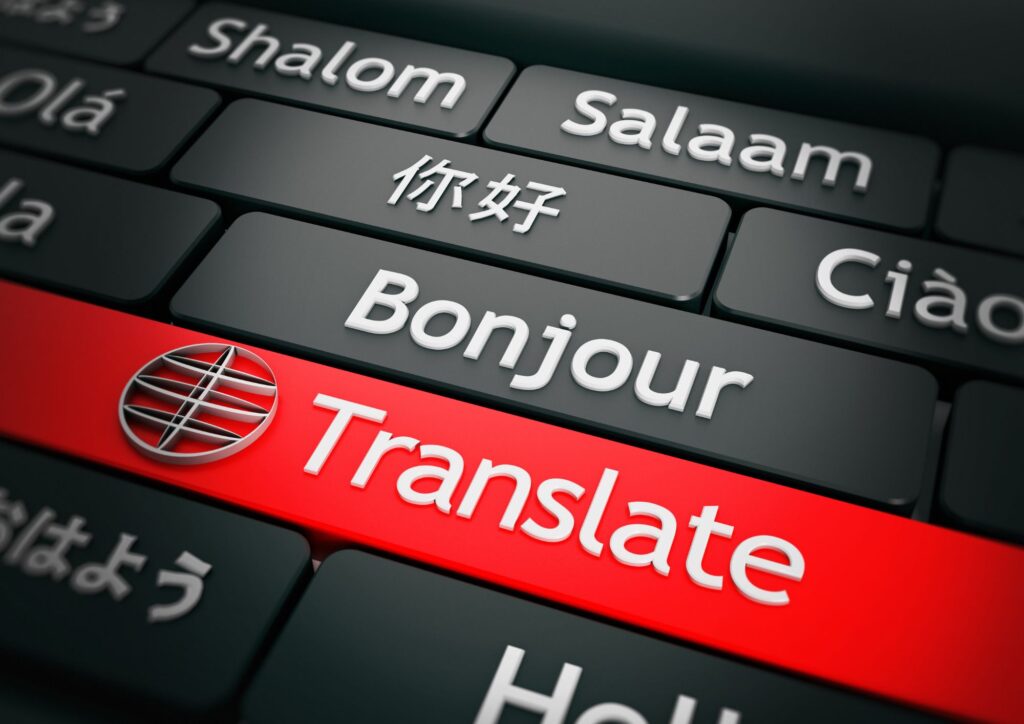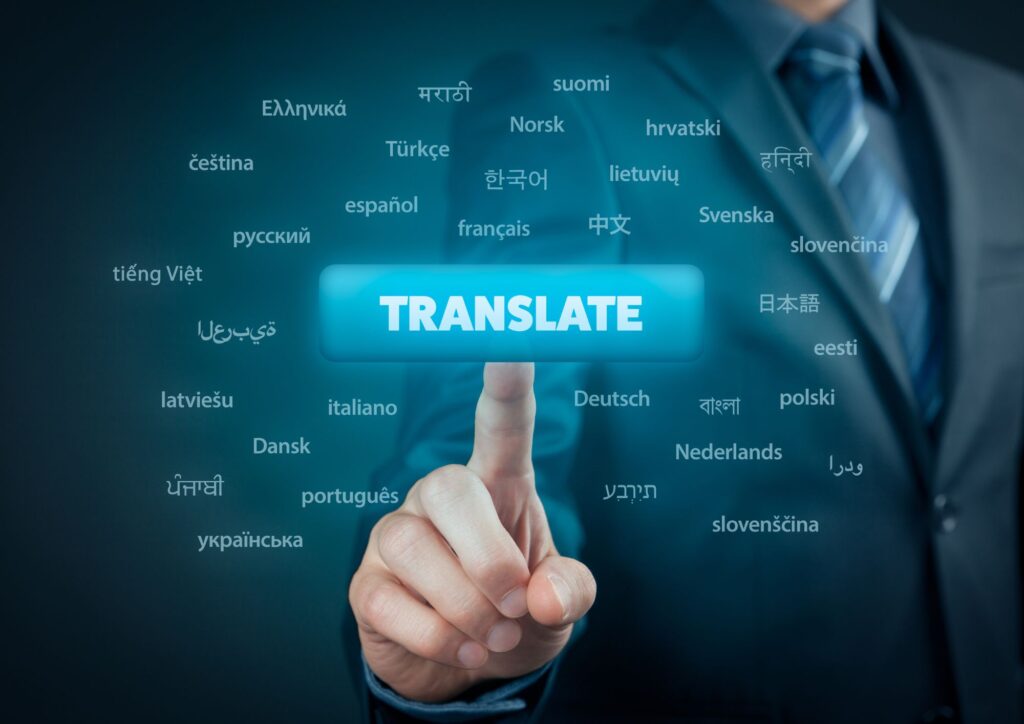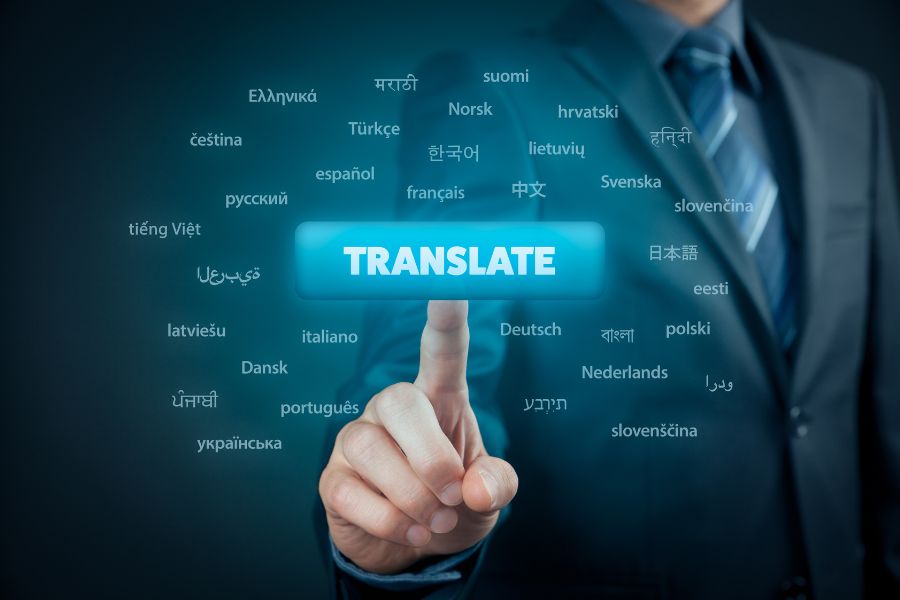Una comparació entre eines com Google Translate i professionals especialitzats
En un món cada cop més interconnectat, la necessitat de comunicar-se en diferents idiomes és més gran que mai. Ja sigui per a negocis, educació o entreteniment, la traducció té un paper crucial.
Tanmateix, això planteja la pregunta: és millor confiar en eines automatitzades com Google Translate o traductors humans?
Aquesta decisió afecta significativament àrees com ara traducció del lloc webactivat, on la precisió i l'adaptació cultural són essencials.

La importància de la traducció acurada en un món globalitzat
A l'era digital, on les barreres lingüístiques es poden trencar amb un sol clic, la traducció s'ha convertit en una eina essencial per connectar cultures, mercats i públics.
Des de contractes legals fins a contingut creatiu i quelcom tan crític com traducció del lloc web la qualitat d'una traducció pot influir directament en com es percep un missatge i en el seu èxit global.
Tanmateix, no totes les solucions de traducció ofereixen el mateix nivell de precisió i eficàcia. Hem de confiar en eines automatitzades com Google Translate, o és millor invertir en traductors humans?
L'auge de la traducció automàtica
Les eines de traducció automàtica han fet avenços significatius en els darrers anys, gràcies als avenços en la intel·ligència artificial i l'aprenentatge profund. Aplicacions com Google Translate i DeepL utilitzen models complexos de processament del llenguatge natural per oferir traduccions ràpides i, en molts casos, raonablement precises.
Avantatges de la traducció automàtica:
- Velocitat i accessibilitat: Eines com Google Translate poden processar textos llargs en segons i sovint són gratuïtes o de baix cost.
- Suport multilingüe: Aquestes plataformes solen suportar desenes d'idiomes, cosa que els converteix en una solució pràctica per a tasques senzilles o no especialitzades.
- Millora contínua: Mitjançant l'aprenentatge automàtic, aquestes eines milloren amb el temps mitjançant l'anàlisi de grans volums de dades.
En el regne de traducció del lloc web, aquests avantatges poden ser atractius per a les empreses que busquen traduir ràpidament el seu contingut i arribar a un públic global. Tanmateix, no tot és un benefici, ja que les limitacions de la traducció automàtica es fan evidents en contextos més exigents.
Malgrat la seva rapidesa, les eines automatitzades no sempre garanteixen precisió o qualitat. Les traduccions solen ser literals, mancades de matisos culturals, de to adequat i d'adaptació contextual.
Errors comuns:
- Ambigüitat en termes tècnics: les paraules amb múltiples significats es poden traduir malament si no s'entén el context.
- Manca de localització: en la traducció de llocs web, és fonamental adaptar el contingut a la cultura i els costums del públic objectiu. Les eines automatitzades solen fallar en aquesta àrea, cosa que pot provocar confusió o fins i tot ofensa.
- Estil inconsistent: els textos traduïts automàticament no tenen un flux natural, cosa que pot afectar negativament la imatge professional d'una marca.
Un exemple clar és quan un lloc web d'empresa confia en Google Translate per traduir la seva pàgina d'inici. Tot i que el resultat pot ser funcional, és poc probable que transmeti el to adequat o compleixi les expectatives culturals dels usuaris als mercats internacionals.

La precisió dels traductors humans
D'altra banda, els traductors humans ofereixen un nivell de precisió i personalització que les màquines encara no han igualat. Els professionals especialitzats entenen el context, el públic i els objectius de la traducció, cosa que els permet oferir resultats significativament superiors.
Avantatges de la traducció humana:
- Adaptació cultural: Els traductors humans fan més que traduir paraules; localitzen el missatge per ressonar amb el públic objectiu. Això és crucial en la traducció de llocs web, on l'impacte cultural pot determinar l'èxit o el fracàs d'una estratègia internacional.
- To i estil consistents: Els traductors asseguren un estil uniforme que reflecteix la identitat de la marca.
- Capacitat per resoldre ambigüitats: En comprendre el context, els traductors humans poden prendre decisions informades per preservar el significat original.
En traducció del lloc web, un traductor professional garanteix que el contingut no només sigui entenedor, sinó també atractiu i persuasiu per al públic objectiu. Per exemple, un lloc web de comerç electrònic que utilitza un professional per traduir les descripcions dels seus productes pot esperar taxes de conversió més altes, ja que el missatge s'alinea amb les expectatives culturals dels seus usuaris.
Quina és la millor opció?
L'elecció entre traducció humana i automàtica depèn de la naturalesa del projecte. Per a tasques senzilles, com ara traduir frases curtes o missatges informals, eines automatitzades com Google Translate poden ser suficients. Tanmateix, per a projectes més complexos o sensibles, com ara la traducció de llocs web, els traductors humans són l'opció ideal.
Factors clau a tenir en compte:
- Pressupost: Tot i que la traducció automàtica és més rendible, els costos de la traducció humana sovint es justifiquen en termes de qualitat i eficàcia.
- Disponibilitat horària: Si el termini és ajustat, una solució híbrida, on la traducció automàtica va seguida d'una revisió humana, pot ser una opció pràctica.
- Rellevància del contingut: Per als materials legals, tècnics o de màrqueting, la precisió és fonamental, la qual cosa fa que un traductor professional sigui indispensable.

A mesura que la tecnologia evoluciona, la tendència està canviant cap a models híbrids que combinen la velocitat de la traducció automàtica amb la precisió dels traductors humans. En aquest plantejament, les màquines generen un esborrany inicial del text, que després és revisat i adaptat per un professional.
En el cas de traducció del lloc web, aquesta metodologia pot ser especialment eficaç, ja que ajuda a reduir costos i temps de lliurament sense comprometre la qualitat del resultat final.
Tot i que les eines de traducció automàtica com Google Translate han revolucionat l'accés a la llengua, el seu abast continua sent limitat en termes de qualitat i adaptació cultural. La traducció humana segueix sent insubstituïble per a projectes on la precisió, el to i el context són essencials, com ara la traducció de llocs web.
En definitiva, la decisió entre traducció automàtica i traducció humana s'ha de basar en les necessitats específiques del projecte. Per a les empreses que busquen expandir-se globalment i connectar realment amb el seu públic, invertir en traductors professionals és una decisió estratègica que val la pena prendre.


